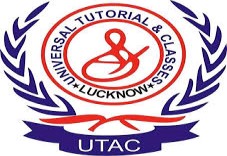Writing an essay seems to be “mission impossible” for many students. They feel intimidated and bewildered, as it is a huge project during which they can be overloaded with other studies. These overwhelming peculiarities of the logic sequence – what goes first and last, what we write in the main body, and so on. You may think it is a catastrophe… How to write a successful essay, interesting and neat? Of course, it is a challenge for everyone, but it is doable. Let’s review the components of a quality essay.
#1 Topic. Choose one that is interesting to you 100 per cent. Then, decide if it should be a general proposition or a detailed overview of the subject. Later, this will form the thesis of your essay, which will be proven either right (usually) or wrong by the end of your work. Relevant, interesting thesis will help you to develop and support the idea of your paper.
Once you pick a topic, you start the research process. A thought-through essay is all about scientific approach. Do you have a feeling that you investigate your life? Turn it into an intriguing process to make it exciting. Think about your life, interests, and jot information about it down.
In the end, figure out what is the goal of your paper. If you want to educate, then pick a subject you have already studied. You should be passionate to persuade your readers. Just remember that it should be an interesting subject for you first of all.
#2 Ideas. Work out a list of your thoughts on the subject. It can be a diagram or an outline if it is easier for you. Just jot ideas down. It is very important as your thoughts should not be scattered; they should be organized in the right way. Even if you have plenty of ideas in your head, just put them on college paper. This list will be your mind map.
To create an outline, just write down an idea and leave some space below. Then the next, and the next. You may come back to the previous point to develop it with sub ideas related to the main subject. Finally, you will have a paper lined with ideas.
If you prefer a diagram, then put several main ideas on paper and connect them to smaller ideas with links.
When you prepare the plan with your thoughts, you will see how to connect them and make links from one to another. These links are your first step to a successful essay.
#3 Thesis. So, gradually, from searching for a topic to forming ideas, we approached a critical component – thesis. A thesis is a key part of your essay. Once again, look through your topic, your thoughts, and make up a good thesis. What does a good thesis mean? The main thing – it should be arguable. It means that if you lay out an argument, then you should set a stage for the exploration that will definitely follow. For instance: “Global Warming: Reality or Myth?” There have to be intelligent ways to contradict it. Ability to argue is a sign of good thesis. As a result, a smart reader will be challenged to agree or disagree.
#4 Motive. A reason why you decided to write about this topic is to demonstrate a current misunderstanding of an important issue. There is a contradiction here that needs to be sorted out. The truth is not what people expect and while reading the essay, there can be an interesting wrinkle in the matter. The author promises to clarify something that otherwise would be left unclear and in ambiguity. Nevertheless, your essay is not going to deepen, illuminate, or solve the problem; the problem is merely discussed in the paper.
#5 The evidence. It is represented by facts and details in a summary or quotation to prove your main idea and sub ideas. It must be ample and concrete to be able to grapple with facts, patterns, and passages. Readers have to be oriented to the source of the evidence that must be cited. As it progresses, it should gain complexity. Furthermore, make logical transitions between the paragraphs.
#6 Analysis and explanation. The evidence is turned into an argument to show the reader how it develops, supports or extends the thesis. The reader might not be an expert on the subject you’ve chosen; this is why the writer is responsible for at least two words of analysis for every word of a citation (but usually more). Ideally, quotations should comprise no more than 10% of your paper – if you want to compose college non-plagiarized essay that will not get you into trouble, of course.
Comments and explanations should follow the main body of the paper. From time to time, it is good to make some connection that echoes some key words or phrases stated earlier. As a result, the reader will draw an analogy between their own perception of the thesis and yours.
#7 Introduction and conclusion. Now that you have the main body of the paper (where the idea is developed and discussed), you need to write an introduction that will attract the readers and make them interested. It is better to grab attention with ‘drama,’ e.g. some shocking numbers, information, story, dialogue, and so on.
The conclusion restates your overall ideas to the reader; usually, it consists of three or five strong sentences. Although you do not need to repeat your thesis, make a reinforcement of it providing a review of main points. In this part, you broaden the implications of your thesis. However, make sure that you do not go too far generalizing; otherwise, you may go astray. You do not want to sound confusing or clichéd, but rather logically and suggestively.
#8 Revision. Finally, after writing the conclusion, you may think that you have completed your essay. It is true. Now you need to check all small and specific details.
Pay attention to the correct order of your paragraphs. They should follow each other in a logical way. If we make some comparison, it must be like the recipe of a birthday cake or mathematical formula. You always should remember that your strongest points are stated in the first and last parts of the paper body; the rest is in the middle.
Double check instructions for your essay if it is possible, as many colleges follow different academic formats (e.g. APA, MLA, Chicago, Harvard, etc.)
Check the grammar and spelling in your paper. Reread it to see whether it makes sense. Does it sound like what you intended it to sound? Congratulations, you have done it!
You Might Want To Read:
Career In Civil Service, Sulfur Oxides, Jawaharlal Nehru University Gate Instrumentation Engineering Question Paper 1 2011, Top 5 Neet Coaching Institutes In Surat, Net Russian Paper Ii Sample Paper 4 2014, Jee Main Advanced Physics Experimental Skills Notes Part 2, Mppsc Prelims General Studies Question Paper With Answer Key 2014 1, Himachal Pradesh Administrative Services Mains Statistics Mock Test Paper 122, Psychology Advanced General Psychology, Aakash Two Year Integrated Course Iit Jee Main Advanced










Like what you read? Give author a thumbs up?
Bookmark this article to read later, drop a remark in comment section and share with your friends..